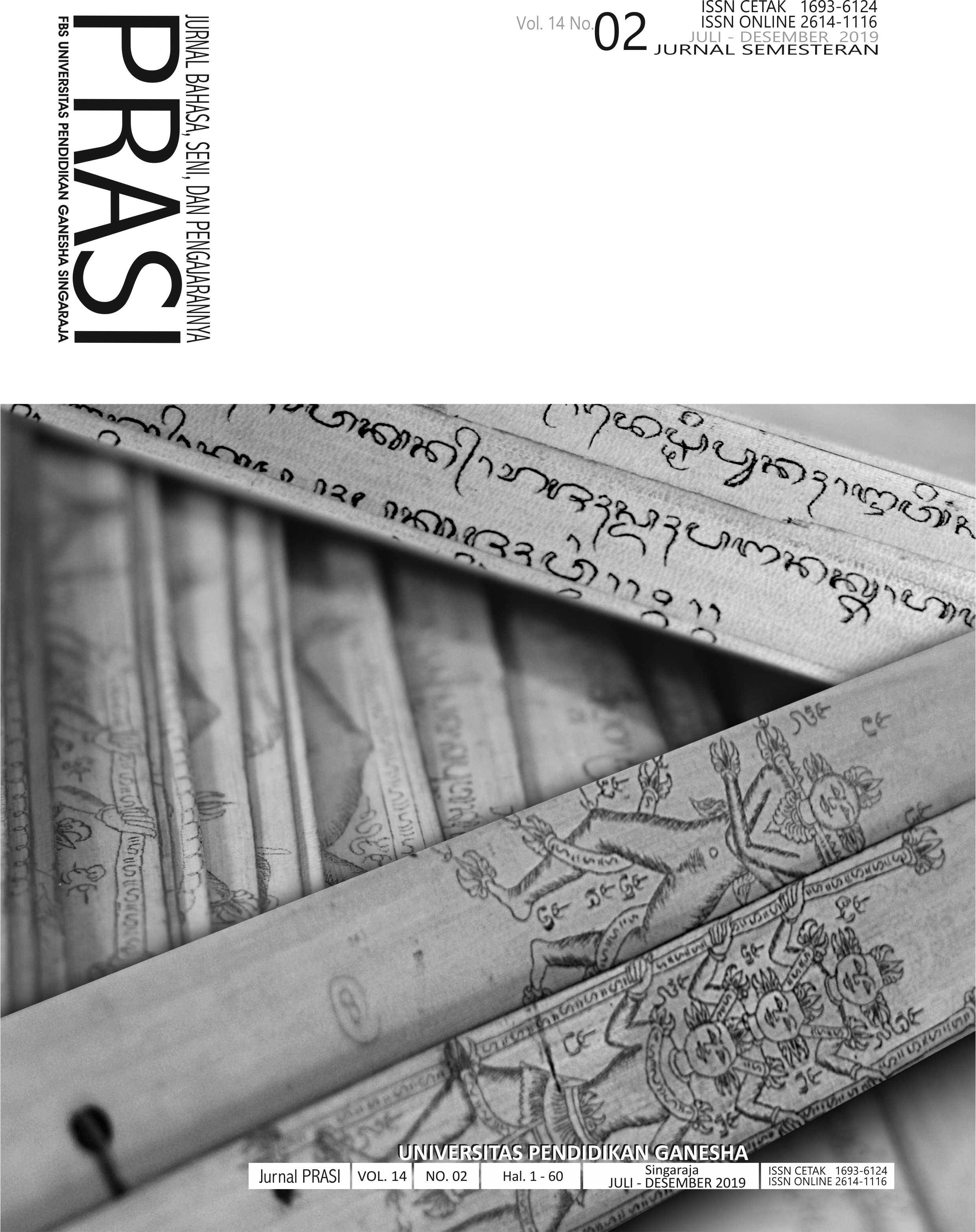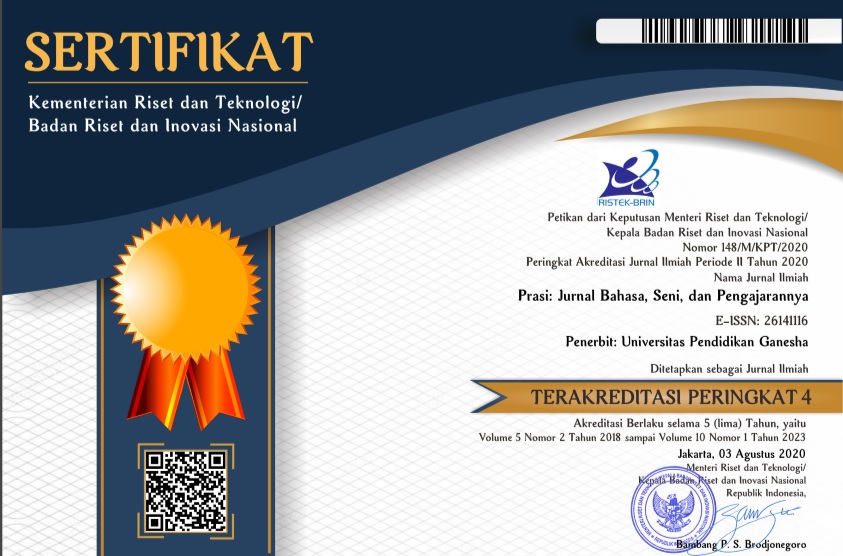MENGEMBANGKAN HABITUS LITERASI DI SEKOLAH
DOI:
https://doi.org/10.23887/prasi.v14i02.22824Abstract
This article aims to know the effectiveness of Gerakan Literasi Sekolah (GLS) through the students’ interaction habits in literacy which was designed by the school formally. Interaction in literacy means when there is a reciprocal between the the students and the text read by the students. The data was collected through literature review, interview, and questionnaire. The data analysis used was descriptive qualitative. The conclusion showed that the students started to think positive toward the literacy habits in SMA N 1 Kuta Selatan which they underestimated it before. The positive impact of this program was confirmed through the students’ written comments. In some classes that were taught by the researcher, most of the students give their positive comments. Their positive comments can be defined as follows. Some of the students started to love a non-academic book, some started to change their habits after reading a motivational book, and most of them felt entertained by this program. The students also got addicted to non-academic books because the books inspired them. Moreover, there were some students who forced their parents to buy their favorite books. The others students admitted that they saved their money in order to buy their favorite books. In addition, they also exchanged their books to their friends after listening to their friends’ story. As a first step, this program has successfully strengthening the ecosystem of education literacy.
Key Words : habitus, literacy, national character, reading interest
ABSTRAK
Artikel ini bertujuan untuk mengetahui efektivitas gerakan literasi sekolah (GLS) melalui pembiasaan siswa beriteraksi dalam berliterasi yang dirancang oleh sekolah secara formal. Batasan berinteraksi dalam berliterasi maksudnya adalah ketika siswa membaca teks, terjadi komunikasi timbal balik antara teks dan siswa. Dialog fungsional ini dimungkinkan oleh pengetahuan siswa sebelumnya dan kemampuan siswa memprediksi teks selanjutnya. Penulisan artikel ini menggunakan metode studi pustaka, wawancara, dan kuesioner, sedangkan analisis data menggunakan teknik analisis deskriptif kualitatif. Simpulan yang diperoleh menunjukkan siswa secara bertahap berpikir positif terhadap upaya mengembangkan habitus literasi di SMA Negeri 1 Kuta Selatan yang awalnya, dipandang sebelah mata oleh siswa dan guru. Dampak positip terhadap program ini terkonfirmasi dari komentar siswa secara tertulis. Dari sejumlah kelas yang penulis ajar, secara umum mereka memberikan komentar positif terkait dengan habitus literasi yang dikembangkan di SMAN 1 Kuta Selatan. Komentar positip mereka antara lain dari awalnya tidak pernah membaca selain buku pelajaran telah mulai menyenangi buku-buku nonpelajaran. Selanjutya, sejumlah siswa juga berubah sikapnya setelah membaca buku motivasi, dan sebagian besar siswa merasa terhibur dari program GLS. Siswa juga mulai kecanduan membaca buku nonpelajaran karena buku yang dibaca menggugah dan inspiratif. Bahkan ada siswa yang memaksa orangtua agar dibelikan buku kesukaannya, dan siswa yang lain mengaku menyisakan uang jajannya untuk membeli buku. Selain itu, mereka juga saling bertukar buku bacaan setelah mendengar cerita temannya. Sebagai langkah awal, program ini berhasil menumbuhan ekosistem pendidikan yang literat.
Kata-kata Kunci : habitus, literasi, karakter bangsa, minat baca
Downloads
Published
Issue
Section
License
Authors who publish with Prasi agree to the following terms:- Authors retain copyright and grant the journal the right of first publication with the work simultaneously licensed under a Creative Commons Attribution License (CC BY-SA 4.0) that allows others to share the work with an acknowledgment of the work's authorship and initial publication in this journal
- Authors are able to enter into separate, additional contractual arrangements for the non-exclusive distribution of the journal's published version of the work (e.g., post it to an institutional repository or publish it in a book), with an acknowledgment of its initial publication in this journal.
- Authors are permitted and encouraged to post their work online (e.g., in institutional repositories or on their website) prior to and during the submission process, as it can lead to productive exchanges, as well as earlier and greater citation of published work. (See The Effect of Open Access)


.png)
.png)









